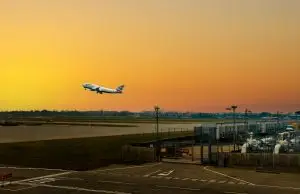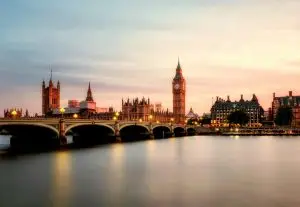With a slew of announcements being made over the past fortnight, Brevia Energy has highlighted the three key developments in the clean power by 2030 mission that you need to know about.
- Launch of the National Energy System Operator (NESO)
After being delayed due to the general election, the National Energy System Operator (NESO) officially launched on 1 October. NESO aims to streamline oversight of the UK’s electricity and gas systems and infrastructure planning, breaking down unnecessary silos. It will also provide impartial advice to the government, including in relation to the clean power mission. NESO is expected to collaborate with GB energy to help integrate new generation projects into the electricity grid.
Fintan Slye, former Executive Director of ESO, will lead NESO. In a recent Politico opinion piece, Slye emphasized the urgency of accelerating decarbonization of the British electricity grid to meet the goals of a clean power by 2030 and net-zero by 2050.[1] He also defined what NESO and the Government mean by achieving a clean power electricity system by 2030; with the working definition of ‘clean power’ being a 95% clean power network, with the final 5% coming from unabated gas. Slye explained that this was due to the escalation in the cost of decarbonisation in trying to achieve the final percentage points towards 100% clean power.
NESO have requested feedback from participants in the Clean Power 2030 Programme’s first forum, where the four topics discussed were NESO’s working definition of clean power; the potential demand and supply mixes; transmission network requirements needed; and policy and enablers suggested to achieve clean power by 2030.[2]
The Department for Energy Security and Net Zero (DESNZ) have also released the outcome of their consultation on energy code reform, deciding the proceed with the proposed conditions set out in the consultation.[3] DESNZ has stated that by the end of 2024, it will begin the process to formally establish the code manager non-competitive selection regime, and will consult on a full draft of standard licence conditions in 2025.
- National Infrastructure and Service Transformation Authority (NISTA)
Chief Secretary to the Treasury Darren Jones MP confirmed plans to launch the National Infrastructure and Service Transformation Authority (NISTA), which will bring together oversight of strategy and delivery under one roof.
NISTA will be the product of the merging of the National Infrastructure Commission and the Infrastructure and Projects Authority, announced back in May as an outcome of Labour’s Major Capital Products Review that was published earlier this year.[4]
Jones also formally confirmed that the Government is developing a ten-year infrastructure strategy, with plans to consult industry.. A £24 billion investment in green energy by private companies was also announced, ahead of the Prime Minister’s International Investment Summit next Monday, underscoring the growing importance of industry collaboration.
This weight given to industry was further highlighted by the announcement by a major investment of £24 billion in green energy industries by private companies.[5] This comes ahead of the International Investment Summit being hosted by the Prime Minister on Monday.
- Clean Power 2030 Advisory Commission
Eight energy experts have been appointed as commissioners for the Clean Power 2030 Commission, providing policy, industry, and academic expertise to the government’s mission and in the delivery of the Clean Power 2030 Action plan, due later this year.[6] In keeping with the urgency of the 2030 mission, Energy Secretary Ed Miliband has already chaired the first meeting of the Advisory Commission, focussing on the need to accelerate the energy system towards the 2030 goal, and addressing potential barriers to meeting the target. The appointed commissioners include:
- Nick Winser, Electricity Network Commissioner
- Juliet Davenport, President of the Energy Institute
- Tim Pick, UK’s Offshore Wind Champion
- Robert Gross, Director of the UK Energy Research Centre and Professor of Energy Policy and Technology at Imperial College
- Craig Bennett, CEO of the Wildlife Trust
- Jo Coleman, experienced energy NED
- Lucy Yu, CEO of the Centre for Net Zero
- Simon Harrison, Group Head of Strategy at Mott MacDonald and Fellow of the Royal Academy of Engineering
BREVIA ENERGY PROVIDES STRAIGHTFORWARD PUBLIC AFFAIRS AND PUBLIC RELATIONS SUPPORT TO ORGANISATIONS OPERATING IN THE UK ENERGY SECTOR.
Discover how Brevia Energy can help you and your organisation by visiting: www.brevia.co.uk/sectors/energy/. You can also contact the Brevia Team on 020 7091 1650 or email contact@brevia.co.uk
[1] ‘NESO launched to guide Great Britain’s energy system to net zero’, Politico, 1 October 2024, Link
[2] ‘First Feedback Request from Forum Participants – Clean Power 2030 Programme’ ESO, Link
[3] ‘Energy code reform: code manager licensing and secondary legislation’, Department for Energy Security and Net Zero, 8 October 2024, Link
[4] ‘Labour plans to merge NIC and IPA into ‘powerful’ new infrastructure delivery body’, New Civil Engineer, 23 May 2024, Link
[5] ‘Tidalwave of clean energy investment worth billions unlocked ahead of Investment Summit’, Prime Minister’s Office, 10 October 2024, Link
[6] ‘Energy experts appointed to deliver clean power 2030 mission’, Department for Energy Security and Net Zero, 10 October 2024, Link




